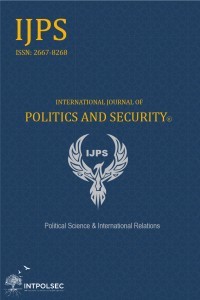Orienting the Relevance of Unconventional Security Architecture and Emerging Urban Spaces in North-Eastern Nigeria
The sequences of political disagreements, of the twenty-first century, has birthed several unconventional security groups that employ a variety of measures to combat crimes in urban spaces. Thus, unconventional security groups have emerged under a locally-based security architecture, and have shown that they can be applied in conventional security engagements. But while other issues in the area have attracted more research attentions, little is known about these unconventional security groups’ operations, especially in urban spaces. Specifically, unconventional security groups emerged as expedient arrangements, based on vast insecurity in the urban areas. It took some processes, which started with a call for volunteers of the locals, which was subsequently heeded by quite a large number of unconventional security groups, to align efforts to fight against insecurity. Although the rate of insecurity has not mitigated in the urban localities, the group has remained intact, and has, sometimes constituted security challenges to the locals. On several occasions, they have also been fingered in acts of human rights abuse, robbery, rape and hooliganism. In spite of these atrocities, the indigenous people still prefer to have them around. Hence, considering urban peace and security processes, there is need for the conventional security groups to seek to simplify, and, at the same time, broaden participation to accommodate the roles of unconventional local-based security component in conventional security prevention. Can we identify a trend in the integration between conventional security groups and unconventional security groups? This study interrogates this question.
Anahtar Kelimeler:
conventional security group, unconventional security group, Nigeria
Orienting the Relevance of Unconventional Security Architecture and Emerging Urban Spaces in North-Eastern Nigeria
The sequences of political disagreements, of the twenty-first century, has produced several unconventional security groups that employ a variety of measures to combat crimes in urban spaces. Thus, unconventional security groups have emerged under a locally-based security architecture, and have shown that they can be applied in conventional security engagements. But while other issues in the area have attracted more research attentions, little is known about these unconventional security groups and their operations, especially in urban spaces. These groups have emerged as expedient arrangements, necessitated by insecurity in the urban areas. It often involves processes, including a call for volunteers in the localities, which was subsequently heeded by quite a large number of unconventional security groups, to align efforts to fight insecurity. Although the rate of insecurity has not mitigated in the urban localities, the group has remained intact, and has, sometimes constituted security challenges to the locals. On several occasions, they have also been fingered in various acts of human rights abuse. Nevertheless, the indigenous people still prefer to have them around. Hence, considering urban peace and security processes, there is a need for the conventional security groups to seek to simplify and, at the same time, broaden participation to accommodate this initiative in the overall security design. This study seeks to interrogate the integration between conventional and unconventional security groups, as evident in north-eastern Nigeria.
Keywords:
unconventional group, security, hybridity,
___
- Baker, Bruce 2010. ‘Linking State and Non-State Security and Justice’. Development Policy Review 28(5), 597–616.
- Baker, Bruce 2013. ‘Hybridity in Policing: The Case of Ethiopia’. Journal of Legal Pluralism and Unofficial Law 45(3), 296–313.
- ISSN: 2667-8268
- Yayın Aralığı: Yılda 2 Sayı
- Başlangıç: 2019
- Yayıncı: Fikret BİRDİŞLİ
